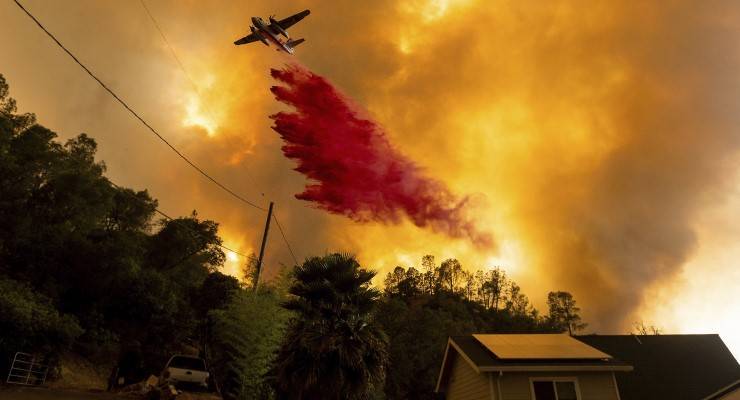
The latest state of the climate report has found the past decade until 2019 was the hottest ever recorded globally.
Depending on which continent you look at, last year was either the second or third warmest year on record.
But 2020 is already well on its way to overtake 2019. This has included the earth’s hottest January on record, Greenland’s ice sheet shrinking past the point of no return and Siberia on fire.
Around the world, cities already struggling with the pandemic are being blanketed in blistering heat.
Americas
California, US: As a 4000-hectare fire rages north of Los Angeles, workers in nearby (and aptly named) Death Valley National Park lived through what could be the highest temperature ever reliably recorded on Earth at 54.4 degrees on Monday.
New York: New species of trees are thriving in New York City, with the region meeting the requirements to be classified as a humid subtropical climate zone for the past five years.
Arizona, US: Phoenix has recorded its hottest summer with a new record for the most number of days 43 degrees or higher. Forty-two days had been recorded by Tuesday August 18, with more expected.
Eureka, Canada: One of the northernmost settlements on Earth, temperatures on Ellesmere Island weather stations — the coldest place in Canada — reached 21.9 degrees in late July. The average July high is usually 9.3 degrees.
Canada’s last intact ice shelf has also collapsed.
The Arctic
Verkhoyansk, Russia: The Siberian town, in the east of Russia and near the arctic circle, is one of the coldest villages in the world. Temperatures in winter drop to below 60 degrees in winter. The summer average high is 20 degrees.
On June 20, the region recorded potentially the hottest temperature recorded north of the arctic circle: 38 degrees.
In May, surface temperatures in Siberia were 18 degrees higher than average.
Svalbard, Norway: Record summer highs have been recorded at Svalbard Global Seed Vault, the world’s bunker holding almost a million seed samples. Inside the vault, temperatures are kept below minus 18 degrees to protect the samples.
In July, the region experienced days of 21.7 degrees, the highest temperatures ever recorded. Normally during summer, temperatures sit between 5-7 degrees.
The Middle East
Baghdad, Iraq: The Iraqi capital recorded almost a full week of record temperatures in the peak of summer, topping 52 degrees on July 28.
The average peak summer temperature is 45 degrees. The city has been plagued with power outages.
It was a similar story in Damascus, Syria, which recorded a record 46 degrees on July 29, and in Houch al-Oumara, Lebanon with 45.4 degrees on July 28.
Europe
London, UK: Central London recorded temperatures of 34.6 degrees recently, marking the first time since at least 1961 that there have been six consecutive days of 34 degrees or higher.
Paris, France: In one of the worst heat waves in more than a century, this month Paris experienced daily average temperatures above 30 degrees, topping 39 degrees on Sunday, August 9.








Frankly, the question needs be asked . . . HAVE WE LEFT GLOBAL RESPONSE TO CLIMATE EXTREMES . . . too late? My small community in NT was the chosen subject of a detailed “Climate Vulnerability Report” financed by Australian Government in 2010. Only now, has Report been released. As a community, we have lost over a decade in which to prepare and survive the listed vulnerabilities. NT Govt resources severely impacted by Covid19.
An example: In 2010 Darwin Cyclone Code for buildings 180kml. Cyclones on east and west coasts of Australia already experiencing 300 – 320 +?
When will people realise that climate change is inevitable – if no-one ever lit another match the amount of CO2 released since the industrial revolution, aka coal burning, has not <I>yet</I> fully impacted?
Already the permafrost is melting which will release ancient methane, a far more potent “greenhouse gas”.
It’s over. All humans can do now is adapt.
And maybe stop being so profligate but that’s a non-starter.